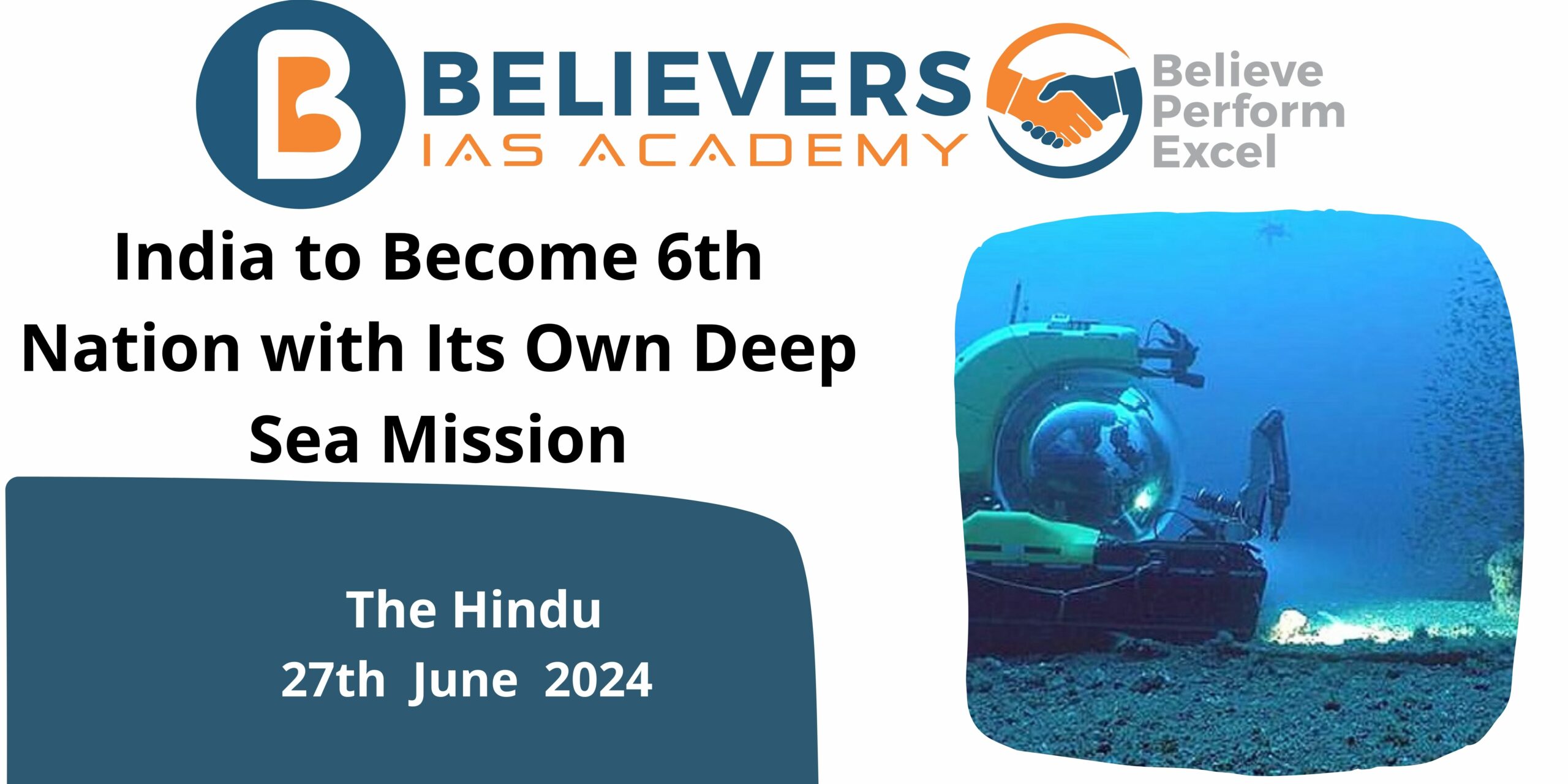India to Become 6th Nation with Its Own Deep Sea Mission
Context:
Recently, Dr. Jitendra Singh, Union Minister of State for Science and Technology and Earth Sciences, has announced India’s imminent milestone of becoming the sixth nation to have a dedicated Deep Sea Mission.
Key Highlights:
Mission Objectives:
- The mission is not solely focused on mineral exploration but also aims at advancing ocean sciences and conserving marine biodiversity.
- Central to the mission is the development of cutting-edge technology for deep-sea exploration.
Technological Advancements:
- Matsyayaan 6000: Developed by the National Institute of Ocean Technology (NIOT), this submersible can dive to depths of 6000 meters.
- Titanium Hull: A collaboration with ISRO has produced a hull capable of withstanding extreme underwater pressure.
- Self-Floatation Technology: Designed for emergency scenarios, enabling the submersible to remain submerged for up to 72 hours.
- Enhanced Descent Capabilities: The submersible can descend to target depths in just four hours.
Impact and Future Goals:
Economic Contributions:
- Boost to Blue Economy: The Deep Sea Mission is expected to significantly enhance the Indian economy by exploring and commercially exploiting rare earth metals and polymetallic nodules from the Indian seabed.
Future Milestones:
- Harbor Trials: The first stage of harbor trials is set to be completed by September 2024.
- Subsequent Trials: Further trials are expected to conclude by 2026.
Indigenous Technology Initiative:
- Reducing Foreign Dependence: Dr. Jitendra Singh emphasized the importance of developing indigenous technology to reduce reliance on foreign technology for deep-sea exploration.
Way forward:
India’s Deep Sea Mission represents a pivotal step in advancing the nation’s capabilities in deep-sea exploration and ocean resource management, aligning with global standards and contributing to sustainable economic growth.




